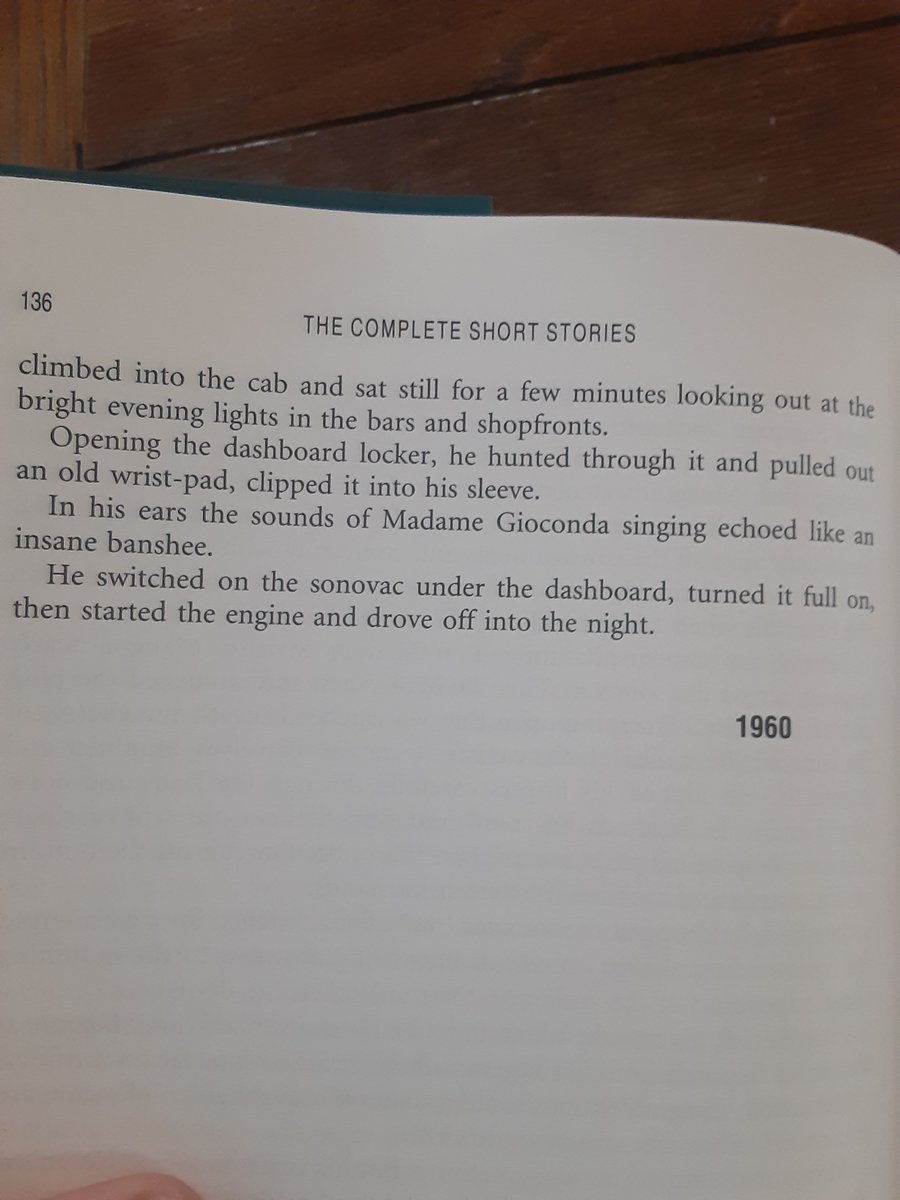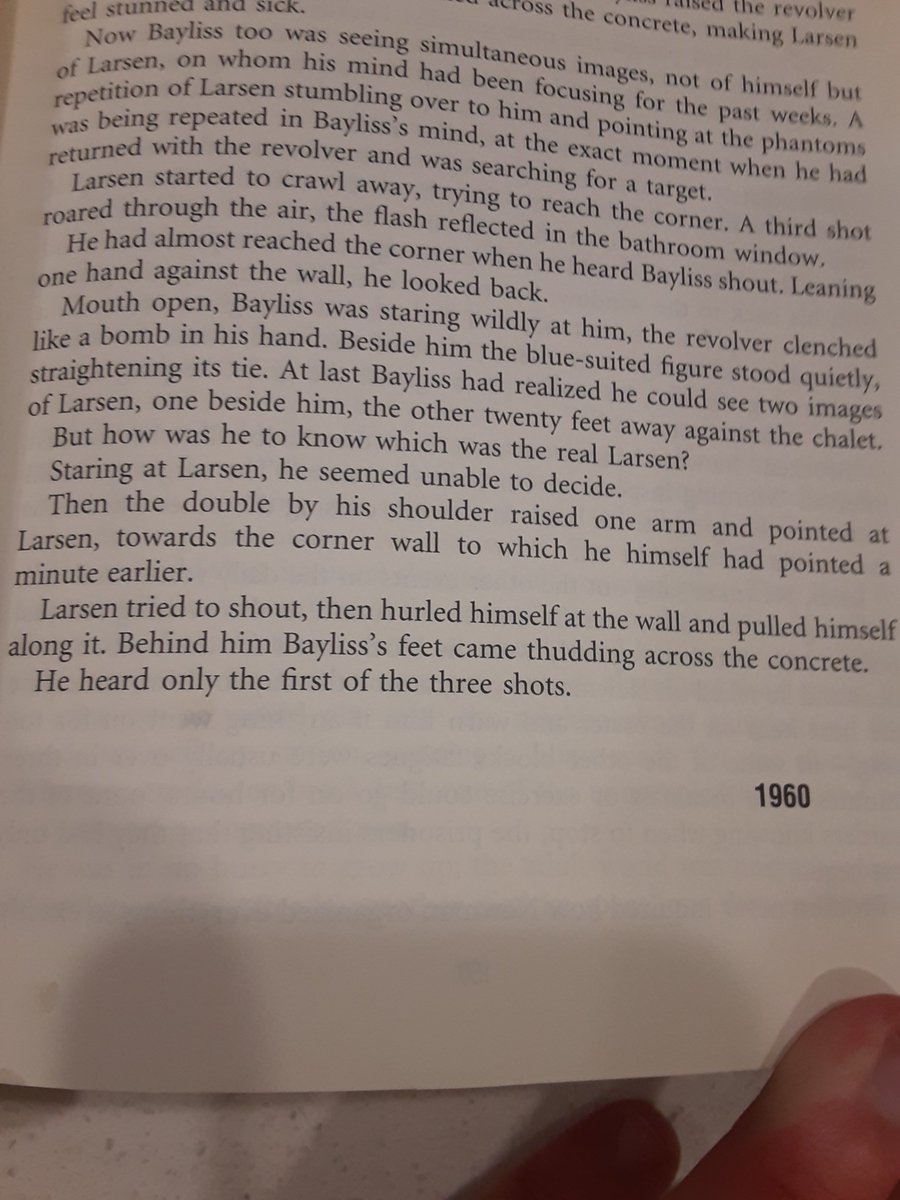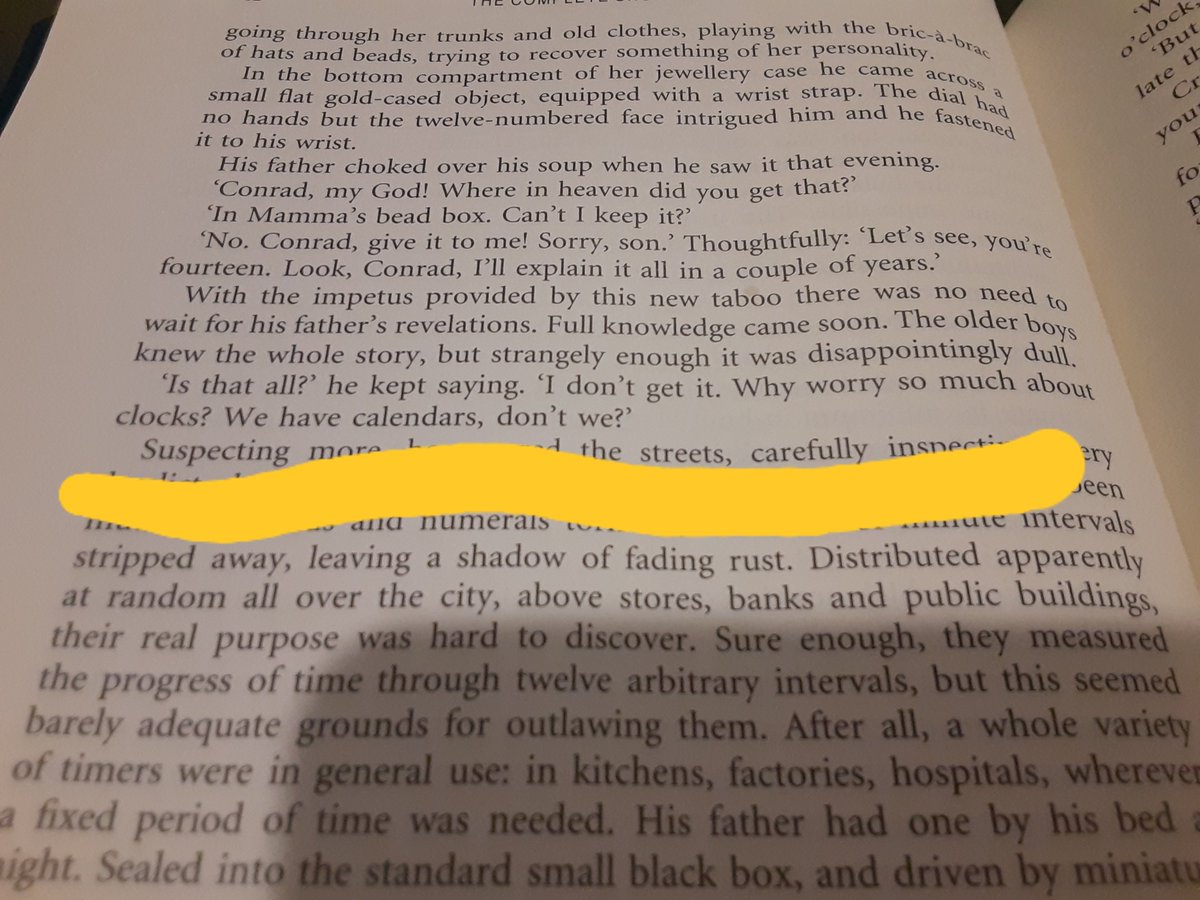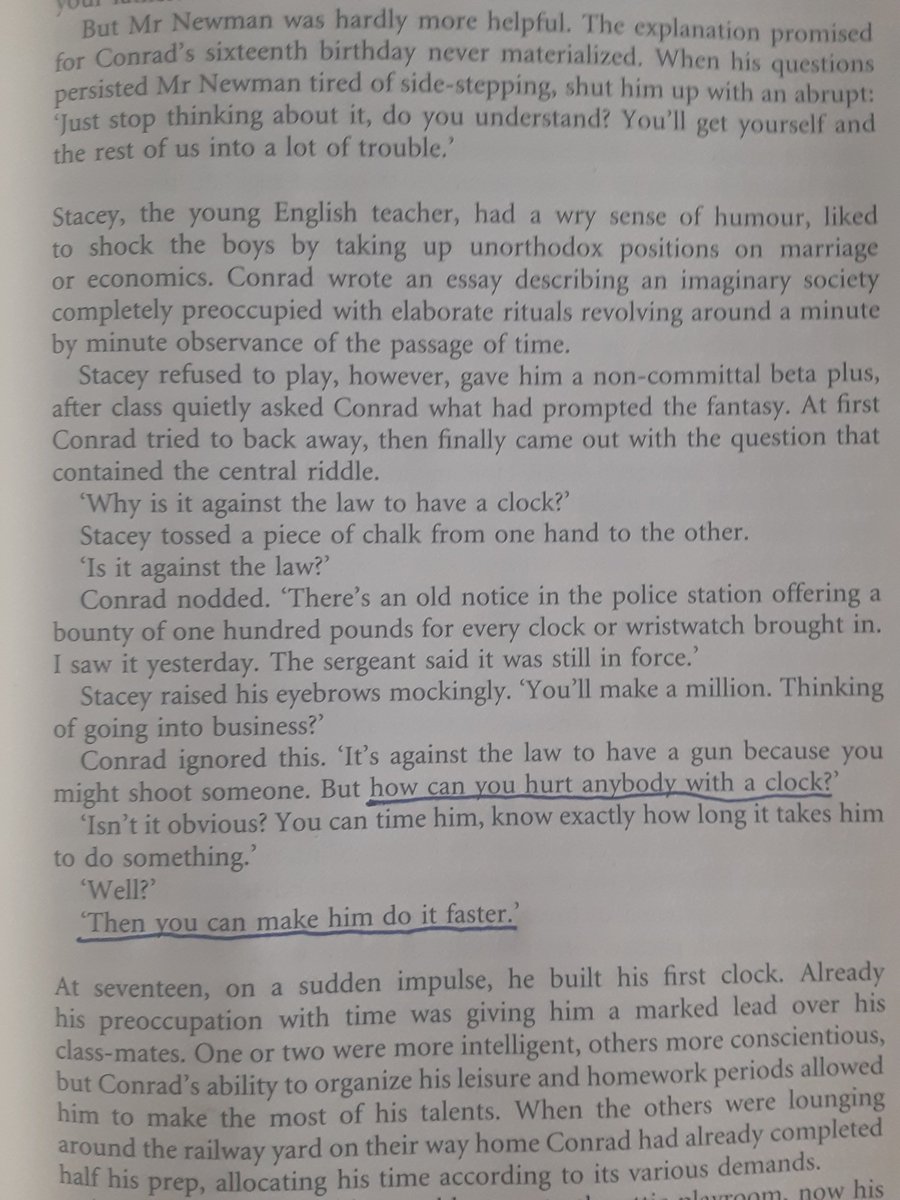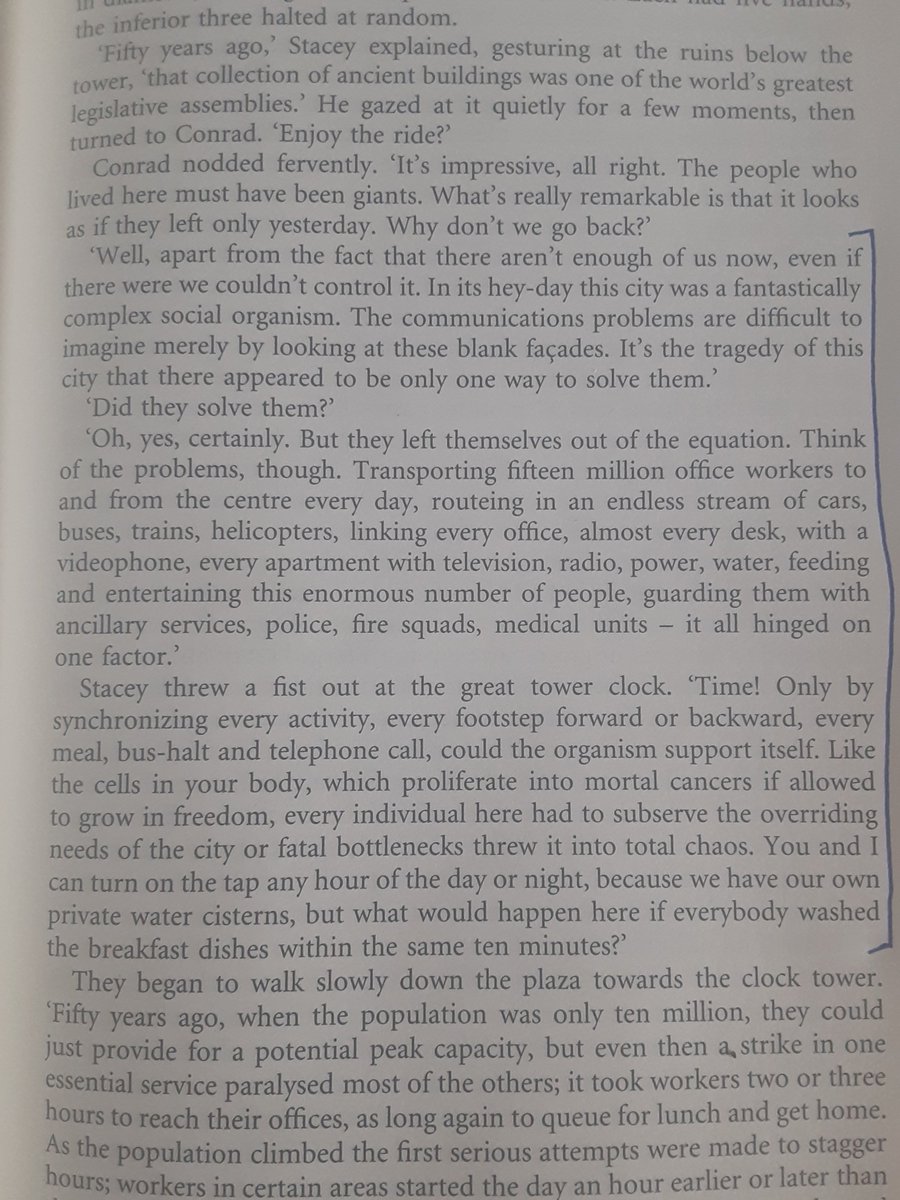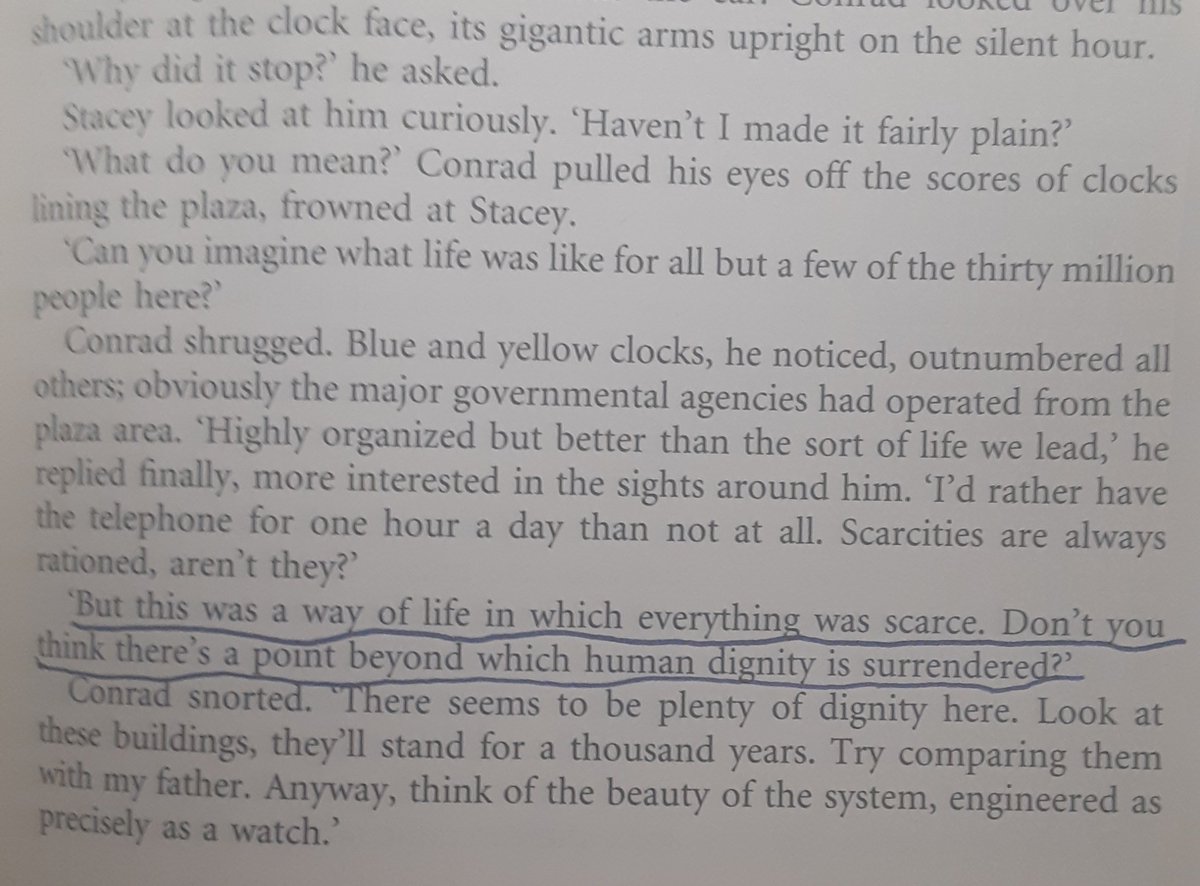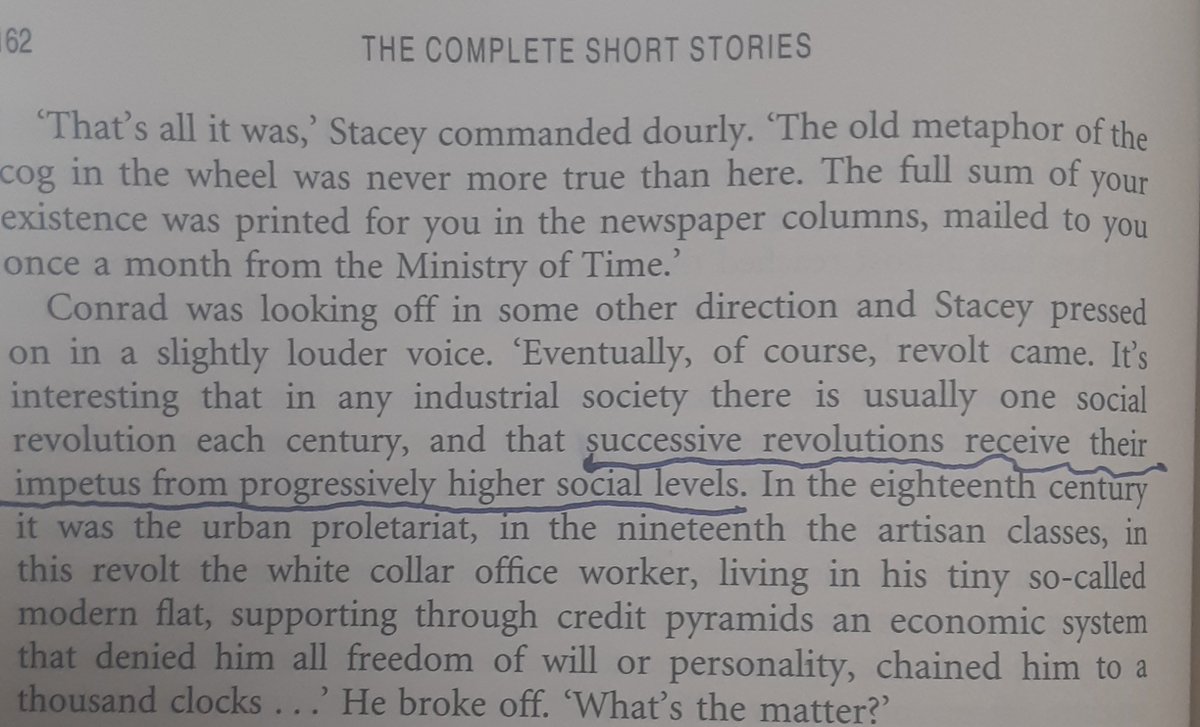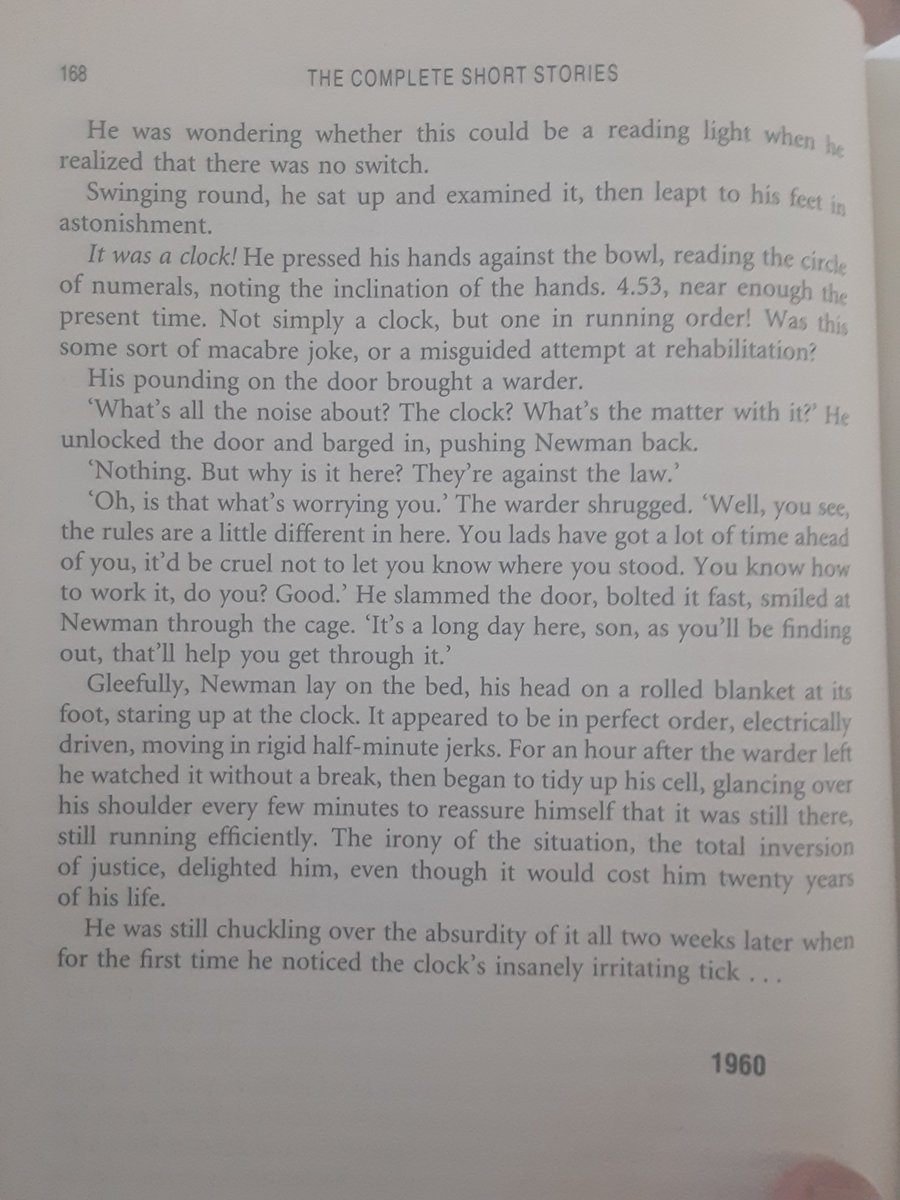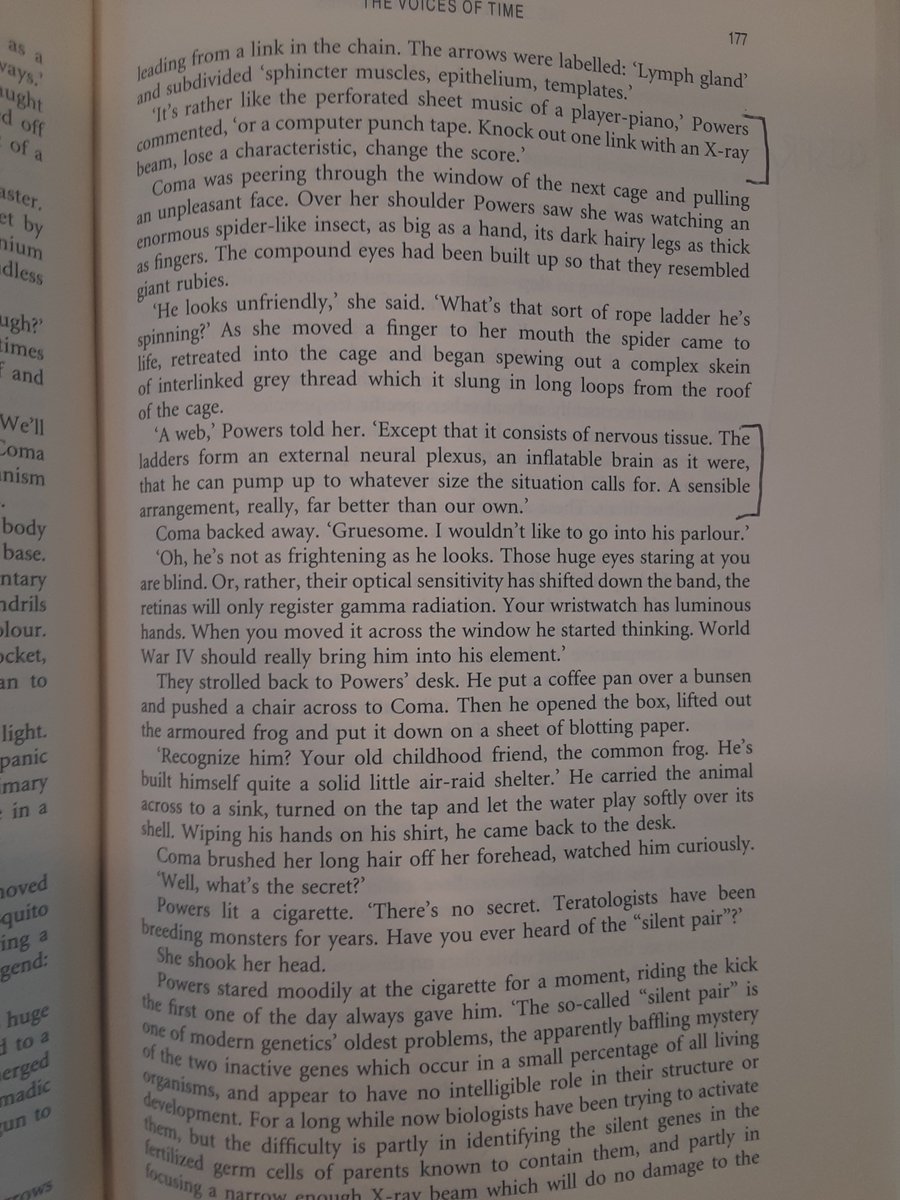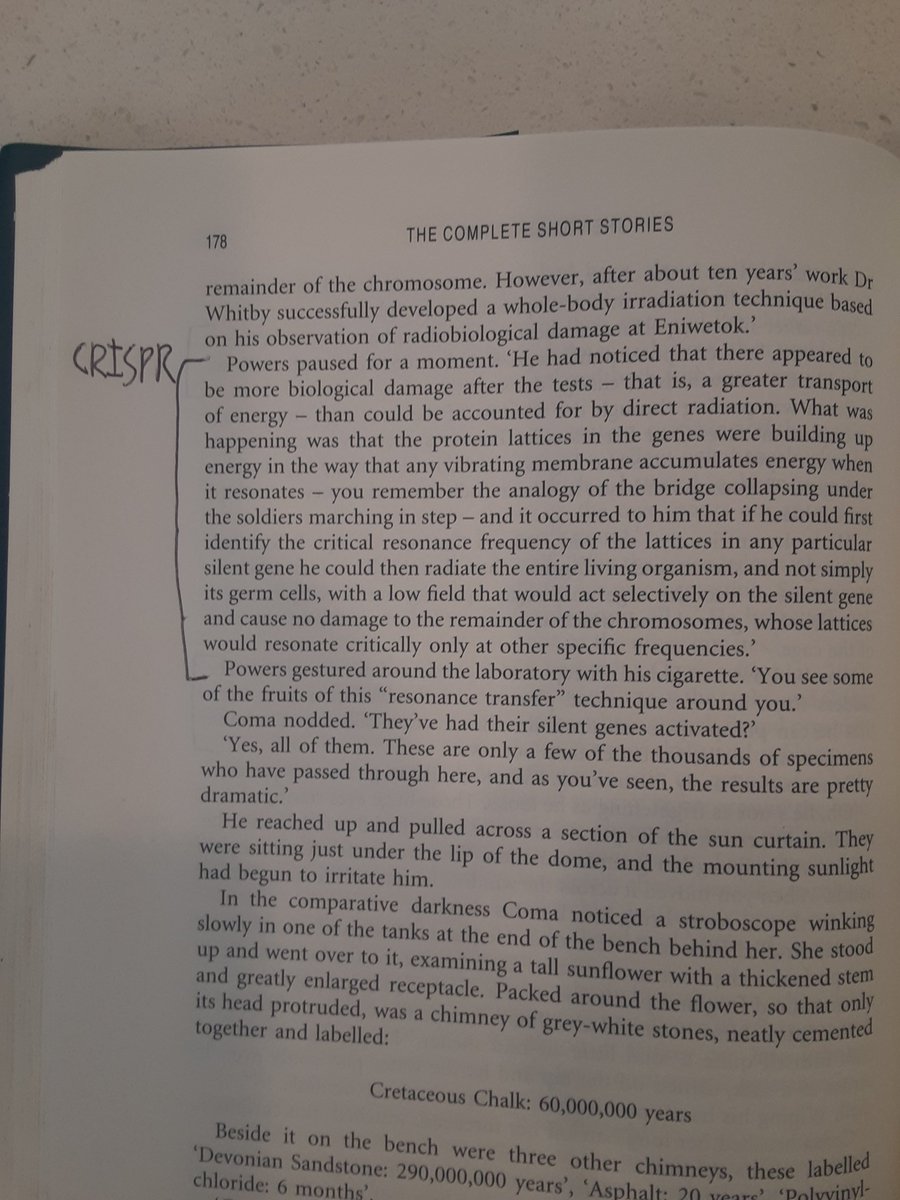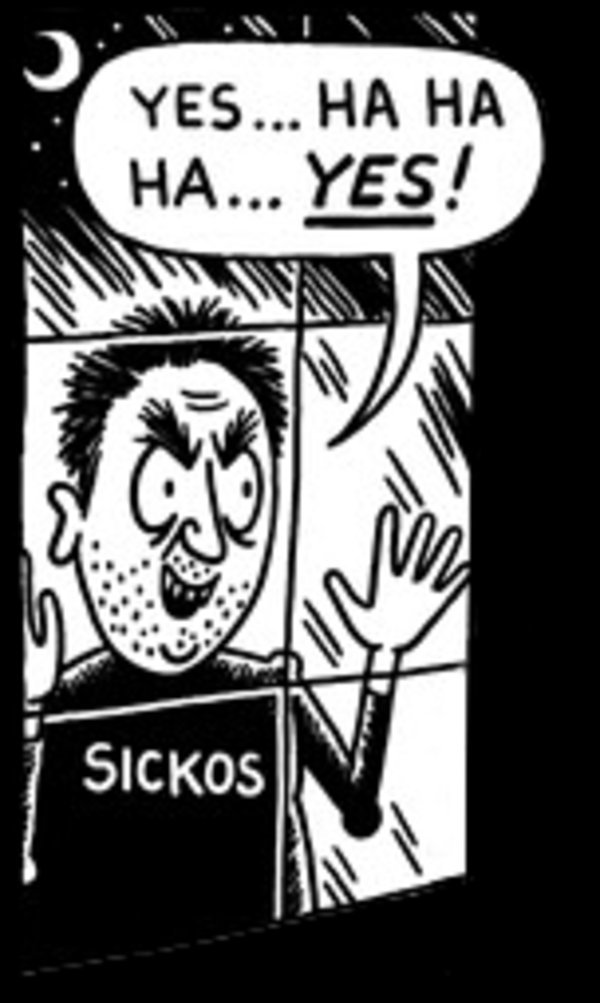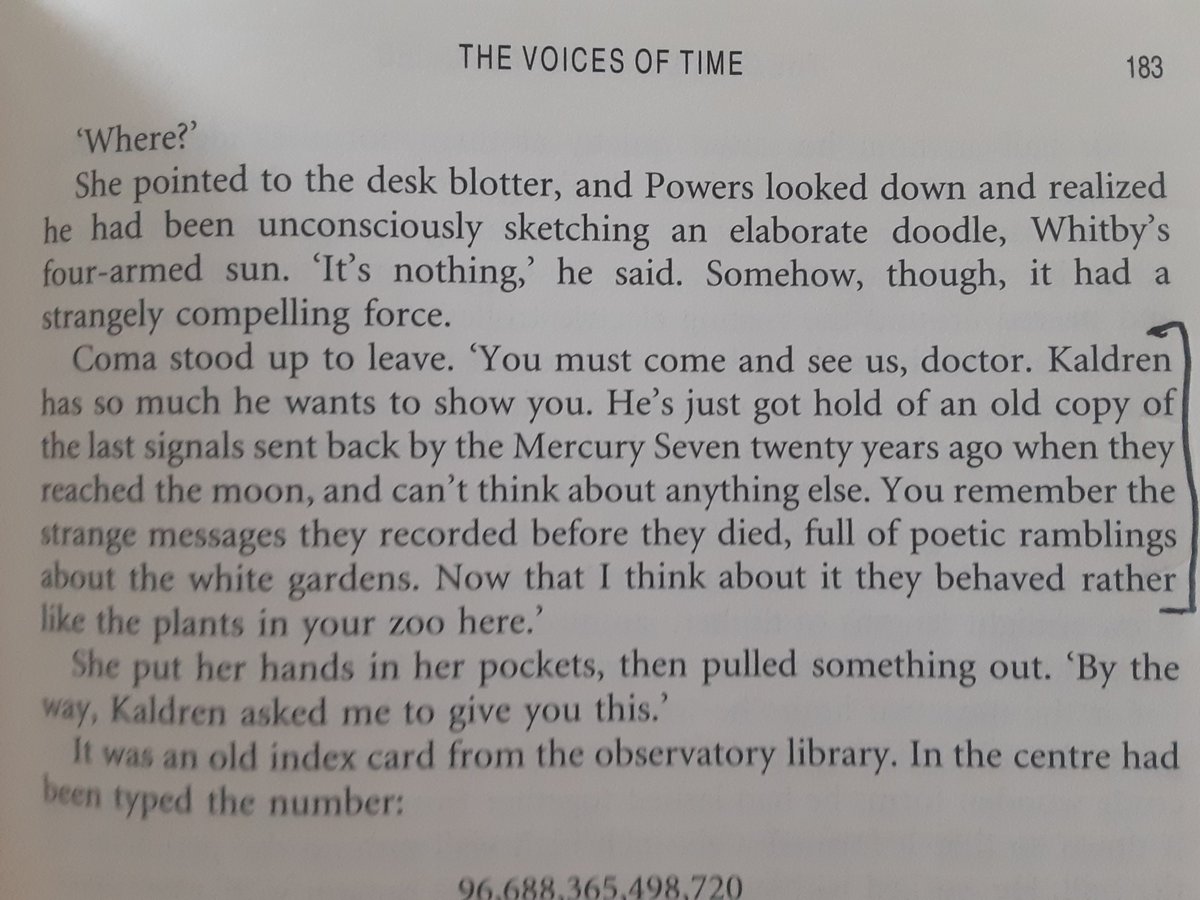He stops visiting his customers and begins going to the sound dumps every day with the singer, they find the part of the dumps for Video City offices (which it is said is specifically scrubbed often because people hate the lingering sound of this CEOs voice).
He starts listening to what he can hear out of the baffling of the walls (where all the collecting soundvacs have been dumped) and eventually recovers some sensitive information. During this process he miraculously recovers his voice while having a good relationship with singer.
So the second blackmail works. She gets a hour of primetime. But the composer whose shoes hes stepping on (that sweeper is also buddy with) is upset because this was supposed to be the presentation of the first big non commercial work hes done in his 5 years at Video City.
Composer visits the singer when she practices and shes just fucking terrible because she hasn& #39;t been practicing her voice in 20 years. He senses disaster and talks to sweeper. Sweeper also knows shes never practiced because hes never heard it in the walls of her place but hes
Never though about it before. Hes never actually heard her sing in person. He begins to worry as well. They hatch a plan: sweeper will sit by the stage and sound vac the singers voice away before it hits an arial mic. "Wont the audience notice they cant hear her?"
"Most of them havnt heard it in so long that they probably dont even know what & #39;to sing& #39; means. They& #39;ll assume its ultrasonic."
The night before the show sweeper goes to visit the singer and there are movers taking things out of her place. He& #39;s shocked. They tell him theres a note inside. He searches and finds nothing but then from the walls hears screaming "leave me alone I never want to see you again"
hes begun to form a stutter. Primetime comes. Hes hiding by the stage with soundvac. She starts singing and it instantly fries his incredible hearing with how awful it is. He turns the soundvac off and breaks it with his hands. Singer is in bliss. The orchestra trails off.
Show has gone completely off the rails. composer freaks out trying to fix the soundvac. The orchestra is wandering off stage. The audience is murmuring. The singers attention cant be had, still going at it. The sweeper has gone mute again. He walks out to his sound truck & leaves
Thoughts: another to add to the family of what I gonna call "(un)stuck in time/art" stories. Another sound centric entry from Ballard. Starting to keep track of how many use the word "re-score". 1960 and we get first hint of "video killed the radio star" theme in this collection
Sweepers muteness composer suggests is psychosomatic and sweeper puns "psychosemantic?" In return. He gains his voice when it looks like singer has a chance at being a star again. And loses it when she sings again and its clesr it& #39;s never going to happen.
I dont think its EXACTLY that pat or simple I think it also has to do with sweeper being lonely & finding this maternal figure and then getting used by her. Anyway its neat that when she opens her mouth to sing on stage he at the same time loses his voice again in response.
ZONE OF TERROR (1960): very similar to MANHOLE 69 in that it is a short view into one mans observed breakdown. In this case the man sees echos of himself, and eventually the psych sees the echos too, because hes been studying the crazy guy.
Like MANHOLE 69 this basically a excuse to expound on ghosts and the patient/psychiatrist relationship. Which because of this story I& #39;m realizing the latter has been notably present elsewhere in this collection as well.
Final lines:
It eventually ends with the psych shooting his patient because he assumes it& #39;s a shadow of his patient.
It eventually ends with the psych shooting his patient because he assumes it& #39;s a shadow of his patient.
Thoughts: I have a books worth of thoughts about the idea of lingering ghosts created by the living. Psychic manifestations of past versions of ourselves. Some if it directly touched on in this story. But I& #39;m not in the mood to expound.
Omg
https://twitter.com/Moonsoother/status/1226613644160487424?s=20">https://twitter.com/Moonsooth...
https://twitter.com/Moonsoother/status/1226613644160487424?s=20">https://twitter.com/Moonsooth...
I& #39;m really enjoying this one.
Seems to be charting the development of some kind of time terrorist. Nobody under 50 remembers when there was time. And of the people over fifty the less educated seem more willing to talk about it so he assumes:
"lower class workers had played no part in the revolution and consequently had no guilt charged memories to repress"
Timers are still allowed. But no clocks.
Timers are still allowed. But no clocks.
He experiments with building simple clocks in the attic but desires a portable timepiece one day at the theater a elderly man next to him has a heart attack and as hes helping to carry him out to the managers office he notices the man is wearing a wristwatch and he steals it.
He wears the watch but keeps it hidden in his sleeve. begins to order his life around this new time-sense, play small jokes and tricks to the amazement of his friends. Then one of his teachers catches on. Teach says what hes doing is technically illegal but the time police were
Disbanded years ago, says student "[isnt] exactly the greatest living menace to society" and that he doesnt want to waste some over worked psychiatrists time.
Tells his student to cancel his saturday plans, because he& #39;s going to take him "back into the past. To Chronopolis, the Time City."
30 million people used to live there. Now only 2 million. The city centre has been completely abandoned and the remaining people live in a ring of suburbs surrounding it. As they enter the abandoned zone, there are clocks EVERYWHERE, most destroyed but those remaining read 12:01.
Teacher says they were all slaves to one master clock that was shut down 1 minute after midnight, 37 years ago.
As they get further into the city the student is surprised he expected a "trip into the past" but the architecture seems more advanced here.
As they get further into the city the student is surprised he expected a "trip into the past" but the architecture seems more advanced here.
Big Ballard "empty swimming pool" vibes in the description of the abandoned city. They reach the city center and get out of their car. The student asks why people dont move back into this amazing immaculate city.
As the population grew it was devided into 12 socio-economic "time zones" in a bid to reduce congestion. This complex managed system overtook every aspect of daily life, with each class having it& #39;s own color coded clocks, currencies, and schedules. https://www.goodreads.com/book/show/16543.Dayworld">https://www.goodreads.com/book/show...
The Fall Of Chronoplois. This metaphor rules. A white collar led revolution with the clock as its symbol of oppression.
lol the teacher was actually secret time police that was about to murder the student but student (Conrad) ran off into the city because he saw one clock that was telling the correct time. Escaped and hid out near the clock to meet the winder.
A old hermit who used to work for the Ministy of Time. Now living on his pension and going around repairing and winding what clocks he can fix as some sort of quixotic quest.
Conrad takes up his own quest. To repair the chimer in the huge clocktower of the Time Ministry& #39;s HQ (the clock mechanism itself had been dynamited). After 6 months he finishes. 30 miles away in the towns surrounding Chonopolis people hear the chimes for the first time in decades
Some start to set their timers by the chimes. Some go to police stations and ask if they can have their clocks and watches back. It& #39;s not long before Conrad is arrested and charged with the death of his teacher, something he was unaware of.
He pleads guilty to everything because hes pretty sure the hermit is the one who killed his teacher and he wants to protect him so at least he can continue his work. Hes sentenced to 20 years. They show him to his cell. He freaks out trying to figure out how to tell time in there
And then he notices..... a clock. Right there. In his cell. He& #39;s amazed at the irony.
Until two weeks later the ticking starts to get to him.
The clock is placed in the cell as an instrument of torture.
Until two weeks later the ticking starts to get to him.
The clock is placed in the cell as an instrument of torture.
Thoughts: the way the protagonist is "the bad guy" reminds me of this short story but inverse. In this story a kid escapes his domed city and meet the people living outside of it. They try to be nice to him but he isnt impressed. https://twitter.com/Moonsoother/status/1227850987831869440?s=20">https://twitter.com/Moonsooth...
They share their food with him and he thinks it sucks. He thinks they& #39;re ugly and they smell because they& #39;re unwashed. He thinks the "freedom" they seek from the society he belongs to is a joke. He does not value their sense of community and unstructured way of life.
He goes home and grows up to basically be Secratary of State of the domed city, where he can send tanks to crush these grotesque, worthless outsiders with no remorse.
Anyway "escapement" is joining "re-score" on my list of words I& #39;m pretty sure Ballard has a thing for. In this entry it enters the story through clock mechanisms.
I enjoyed the talk of revolution& #39;s character and lasting effects. But I& #39;m really not educated enough on that to add much too it.
okay one thing to add. I like those ideological versions of the japanese in caves who dont know the war is over. Those hold outs for an old order that doesnt exist anymore and that they may have never even personally interacted with. Seeking return to something they never knew.
I& #39;m joking this is the first time Ballards well known fascination with "well off society in decline" aesthetic oft represented by his use of the empty swimming pool has been directly invoked in this collection.
I mean the first time the pool has been invoked. Not the aesthetic.
I can& #39;t belive these are 60 years old. I really enjoyed Chronoplois. I havnt read a short story collection in a bit and the punchiness of the limited form is just great. Boring first acts and exposition are done so fast if they& #39;re even there at all.
But at the same time CONSTANT textual reminders that these are indeed 60 years old. Expired predictions. Alternate presents as dreamed by the past.
Thinking about it more it makes sense that a device that was a socially demonized symbol of oppression would find a use by the society to punish people.
Trying to think of any real world examples.
The crown of thorns, perhaps
"Callouts", perhaps.
Electric chair as throne, perhaps.
Public shaming reeks of this, too me, but I cant elucidate why. Probably wires getting crossed in my brain about "oppressive symbols".
The crown of thorns, perhaps
"Callouts", perhaps.
Electric chair as throne, perhaps.
Public shaming reeks of this, too me, but I cant elucidate why. Probably wires getting crossed in my brain about "oppressive symbols".
Or maybe because it& #39;s a form of "oppression" that& #39;s timeless. it& #39;s been used by every oppressive order in history and is still popular today. So its using a socially demonized form of punishment from an older order, it& #39;s just that it never really went away so we couldn& #39;t miss it.
But that makes me ask HAS historical public shamings really been that heavily stigmatized? And I think about the Game of Thrones SHAME scene. How many people in america would happily bring back stockades, etc? I am now curious.
This makes me thing of the news stories where a judge orders a man to stand on the side of the road with a sign or some shit.
It also makes me think about the public shaming element of sex offender laws but let& #39;s not.
It also makes me think about the public shaming element of sex offender laws but let& #39;s not.
I& #39;m trying to imagine what a human culture with the #1 rule of No Public Shaming would even look like and my brain is melting. The United States of We Dont Kinkshame Here.
Guess what I& #39;m watching later.
https://en.wikipedia.org/wiki/Chronopolis_(film)">https://en.wikipedia.org/wiki/Chro...
https://en.wikipedia.org/wiki/Chronopolis_(film)">https://en.wikipedia.org/wiki/Chro...
Though from the synopsis it doesnt seem to actually be based on the Ballard story. I did a google for Ballard film adaptations and google threw it at me anyway.
Also, this is fun. Ballard is first use.
https://en.m.wikipedia.org/wiki/Chronopolis">https://en.m.wikipedia.org/wiki/Chro...
https://en.m.wikipedia.org/wiki/Chronopolis">https://en.m.wikipedia.org/wiki/Chro...
"Powers looked composed and self-possessed, like a Conradian beachcomber more or less reconciled to their own weakness."
$5 dollars to anyone who wants to explain "Conradian beachcomber" to me I& #39;m 100% serious.
$5 dollars to anyone who wants to explain "Conradian beachcomber" to me I& #39;m 100% serious.
Like I assume its Joseph Conrad?
"Conrad wrote stories and novels, many with a nautical setting, that depict trials of the human spirit in the midst of what he saw as an impassive, inscrutable universe."
Ah. I see. A fellow after my own heart.
https://en.wikipedia.org/wiki/Joseph_Conrad">https://en.wikipedia.org/wiki/Jose...
Ah. I see. A fellow after my own heart.
https://en.wikipedia.org/wiki/Joseph_Conrad">https://en.wikipedia.org/wiki/Jose...
Joseph conrad beachcomber google not especially elucidating. Will file for later.
Dialogue is not Ballards strong suit and frankly it& #39;s never been mine either so I& #39;m learning some interesting lessons about how to tell a good story with minimal/bad dialogue.
A diary entry to recount a conversation instead of showing the actual conversation, for example.
Homework:
Compare/contrast these metaphors for altering genitics:
"Altering the player panio sheet to change the score"
"Finding the unique resonate frequency of a specific gene and vibrating it."
"Celluloid film cut and paste"
"Computer word search and replace."
Compare/contrast these metaphors for altering genitics:
"Altering the player panio sheet to change the score"
"Finding the unique resonate frequency of a specific gene and vibrating it."
"Celluloid film cut and paste"
"Computer word search and replace."
Particularly in this story their editing tool is highly directed radiation so the "punching holes in the sheet music" is pretty mechanically accurate for the simple early form of what they& #39;re doing.
I wish we had two different words for the kind of "editing" a person does and the kind of editing a machine with a set of instructions does.
Talking about CRISPR itself as a gene editor gives it a kind of unearned agency. If there is "editor" in the mix it& #39;s the creator. But he is not the tool himself and might even have limited understanding of what he& #39;s created. A minor word quibble. "Gene editing tool" is fine.
ofc now thinking about the way viruses alter our genes. And what that means if I& #39;m ascribing an "editor" agency. I havnt mentioned it yet but the current story is a plauge story. Much slower than our. This is good talk about our relationship with viruses.
http://longnow.org/seminars/02011/jun/07/viral-time/">https://longnow.org/seminars/...
http://longnow.org/seminars/02011/jun/07/viral-time/">https://longnow.org/seminars/...
In these two pages you can see two of the metaphors (including the singularly bizzare vibrational one) and example of the menagerie of fucked up animals in this research lab that they& #39;ve created bry expressing a "silent gene" inside all things that seemed to serve no purpouse.
This is very similar although a much more simple version of the idea of "vampires" resurrected from our evolutionary history from "junk" genes. Used in his novel Blindsight. He gave a neat "in universe" lecture about vampires but the audio quality sucks. https://youtu.be/wEOUaJW05bU ">https://youtu.be/wEOUaJW05...
Sorry, *Peter Watt& #39;s* novel Blindsight (2006). https://www.goodreads.com/book/show/48484.Blindsight">https://www.goodreads.com/book/show...
Ballard also used this concept in his 1962 novel The Drowned World. Where the natural life seemed to be evolving/regressing into a triassic era because of the extreme heat. In that case he was saying the past was reclaiming the world as humanity receded.
This exchange is so funny to me on multiple levels. It& #39;s such a Mulder/Scully thing. It& #39;s such an encapsulation of the difference between "soft" and "hard" sci fi. Whitby is definitely Peter Watts. Ballard doing a "giveaway line" where you say the subtext outloud, hypothetically
Ballard: "I suppose you could take the view that it& #39;s a compensation device a sort of mass nurotic attempt to escape from the terrifying pressures of urban life in the late twentieth century."
We know, it& #39;s just about all you talk about.
He& #39;s describing himself and his audience
We know, it& #39;s just about all you talk about.
He& #39;s describing himself and his audience
this thread has made me get into this good inhale/exhale dynamic with reading this book because I dont want to get too far ahead without writing a summary for a story I read but I dont always feel like writing them so I slow down which consequently gives me more time to digest

 Read on Twitter
Read on Twitter